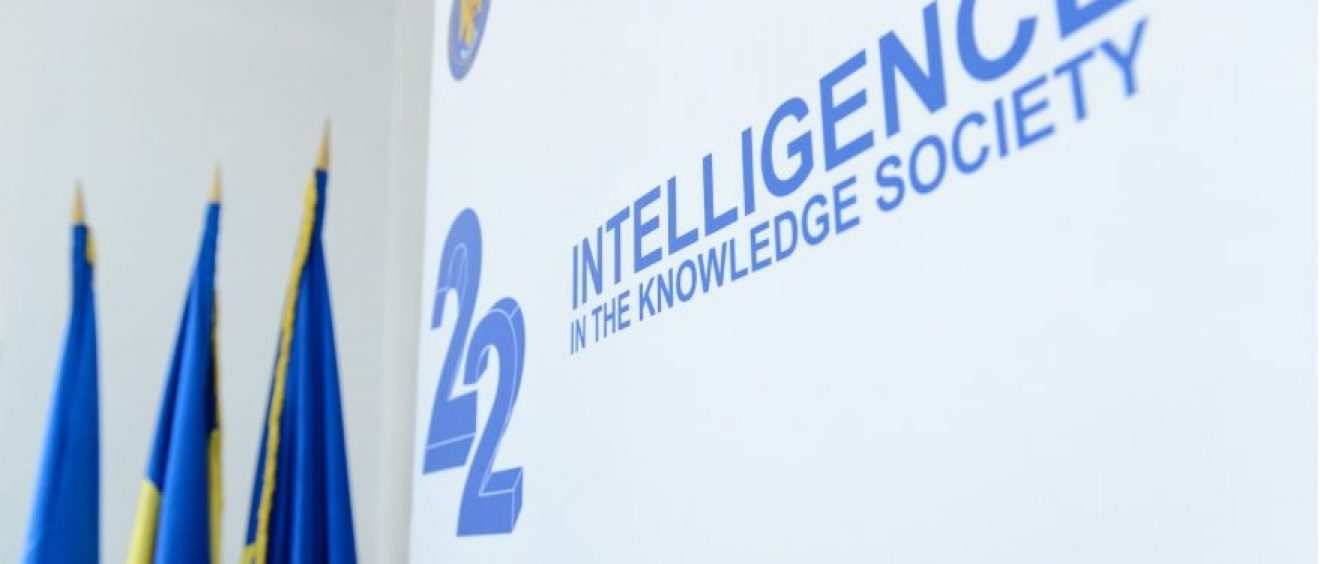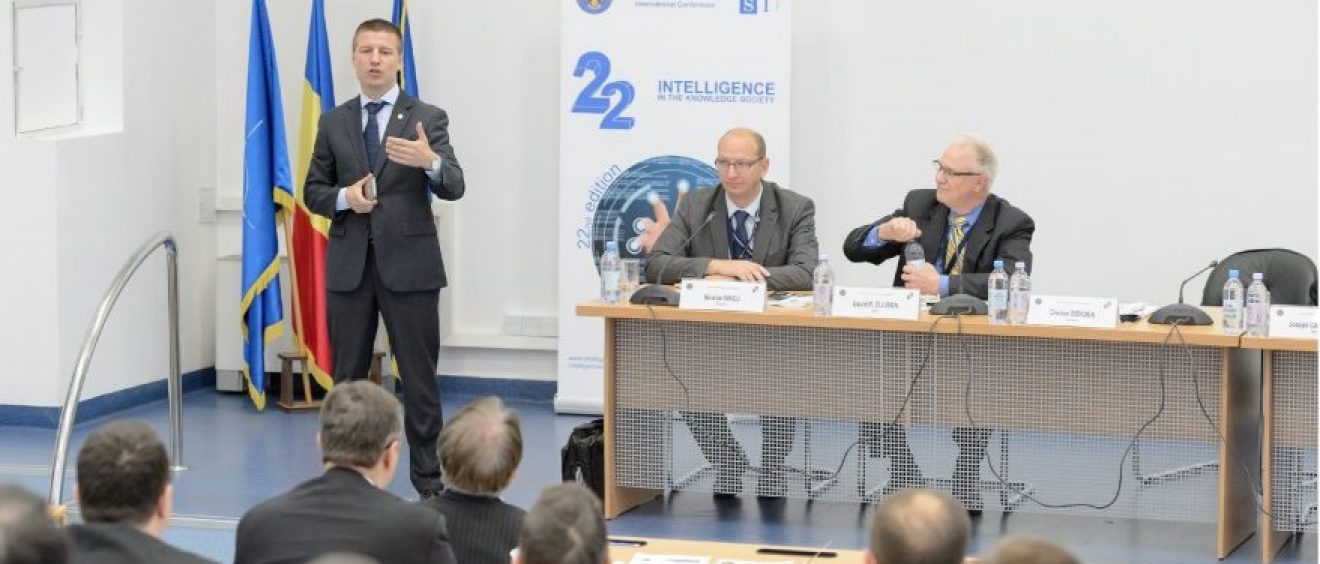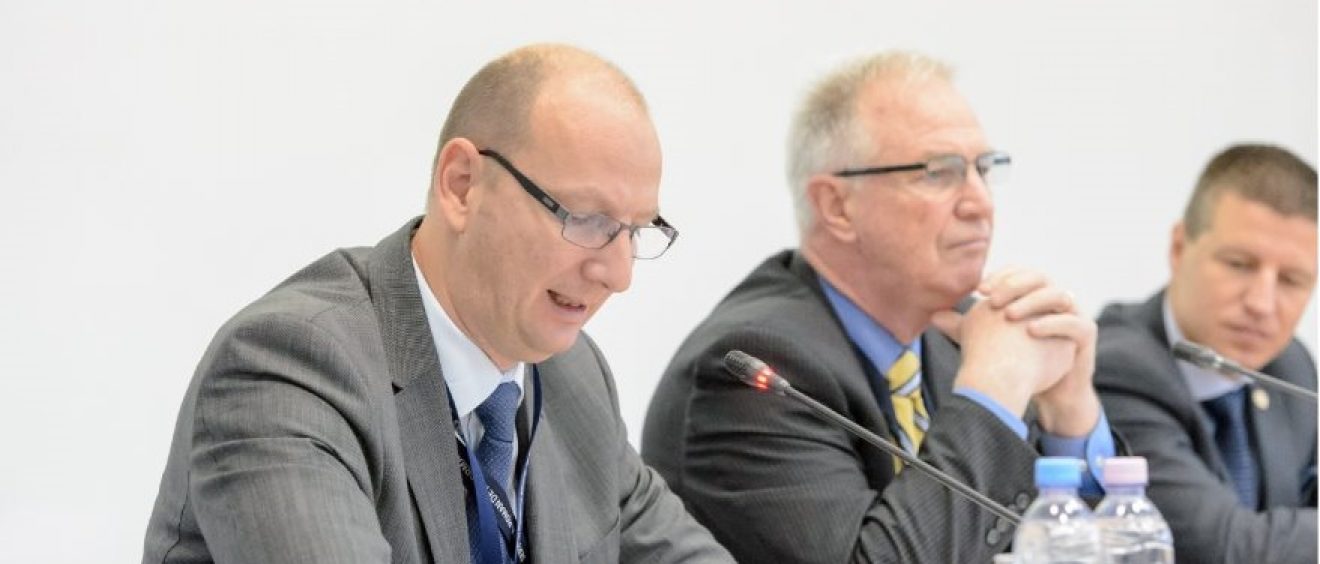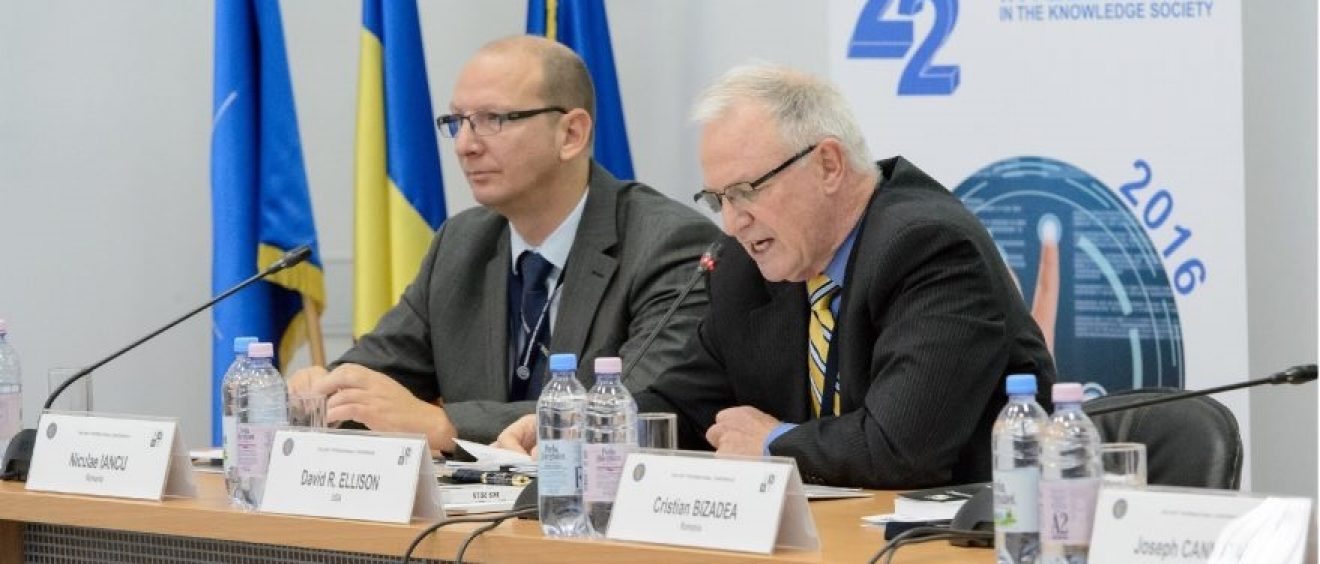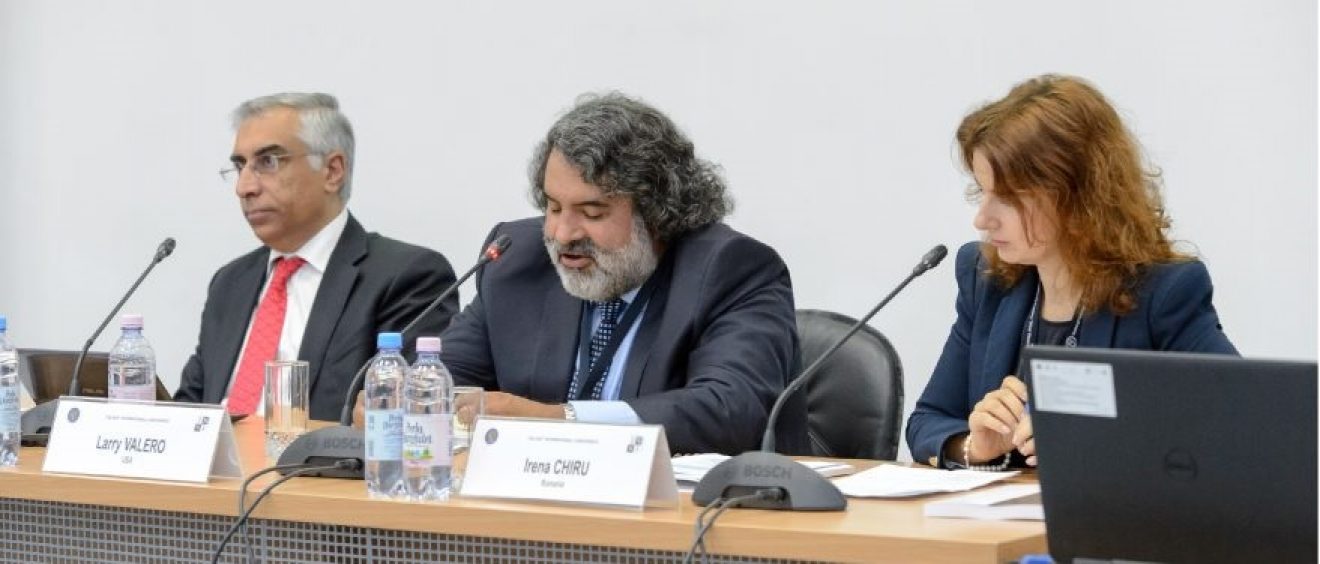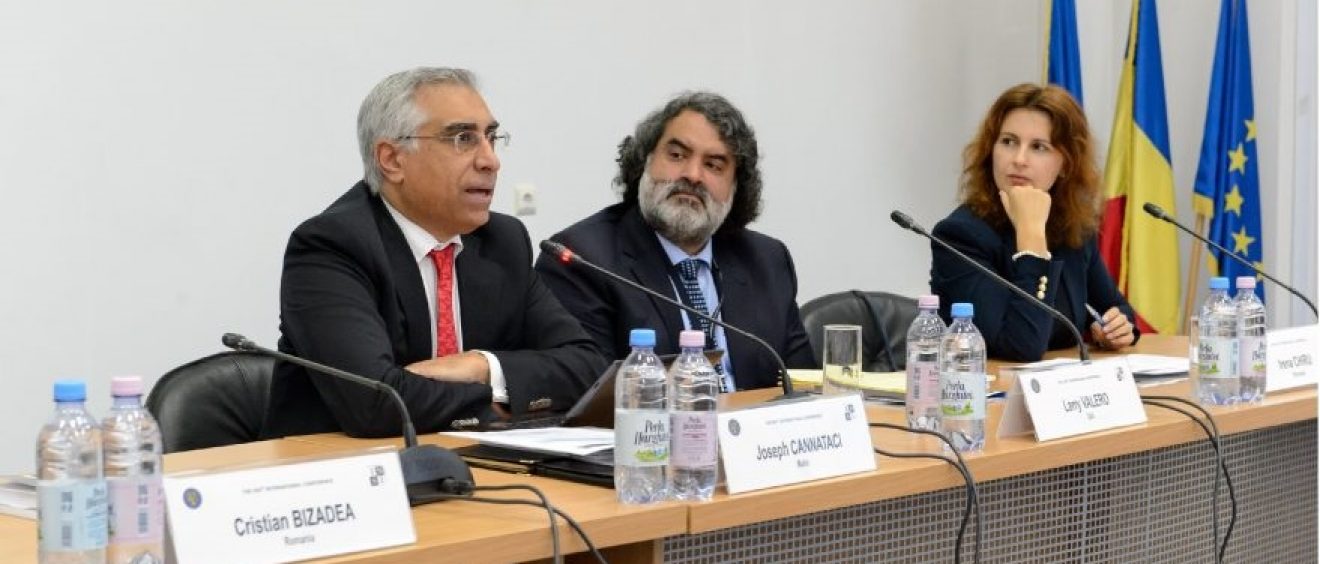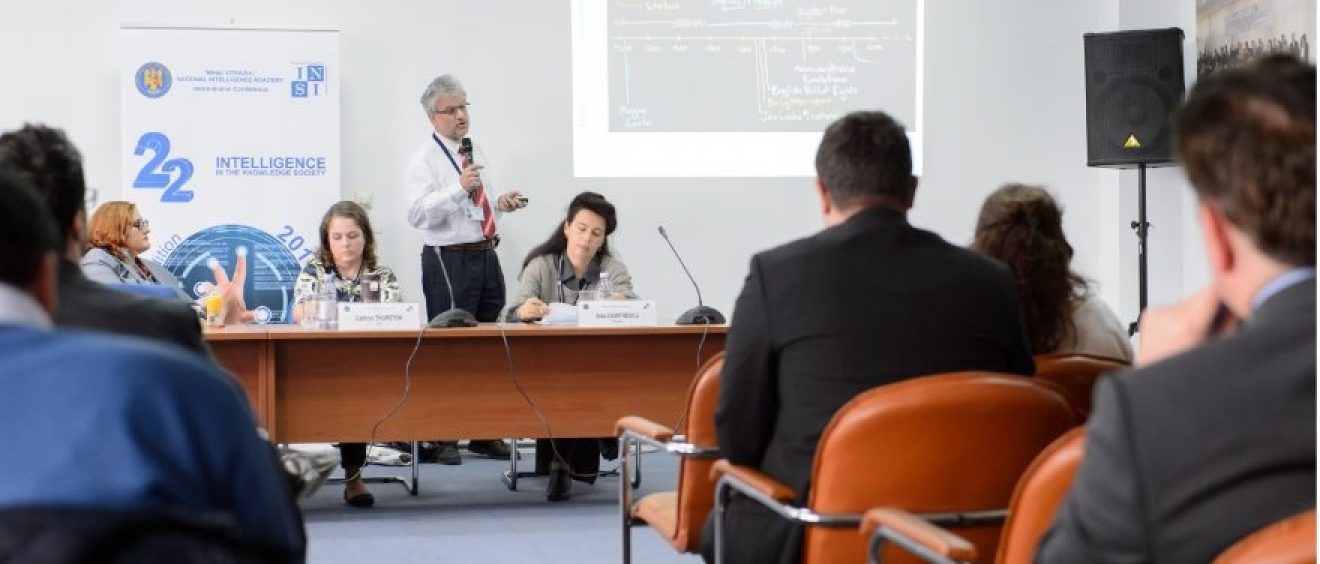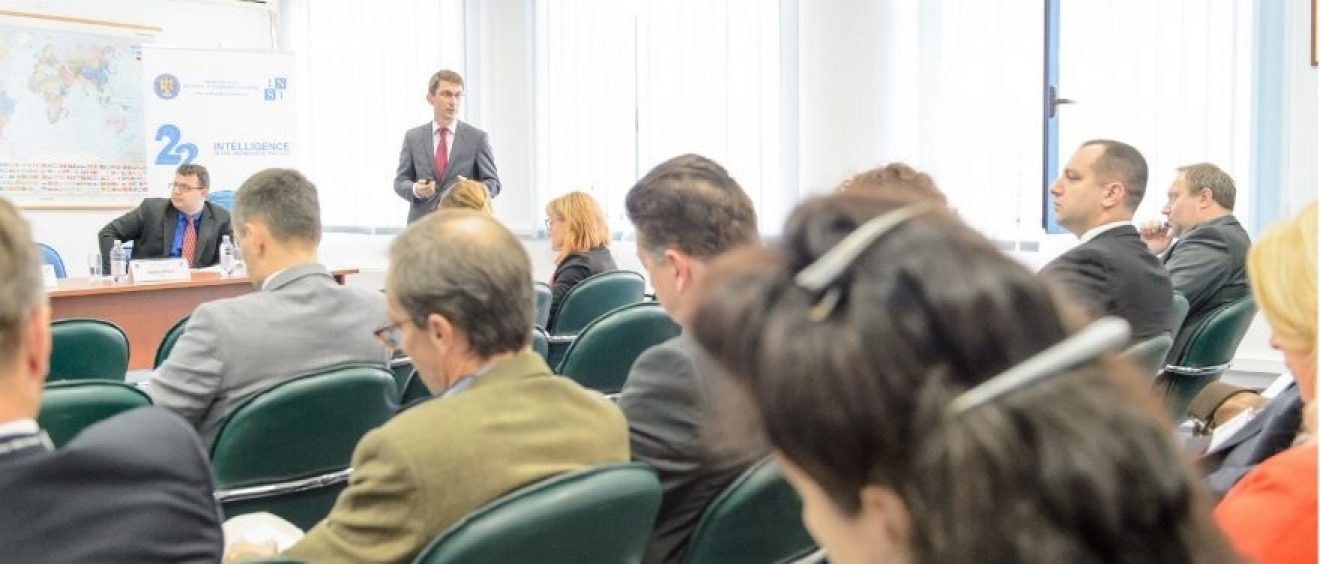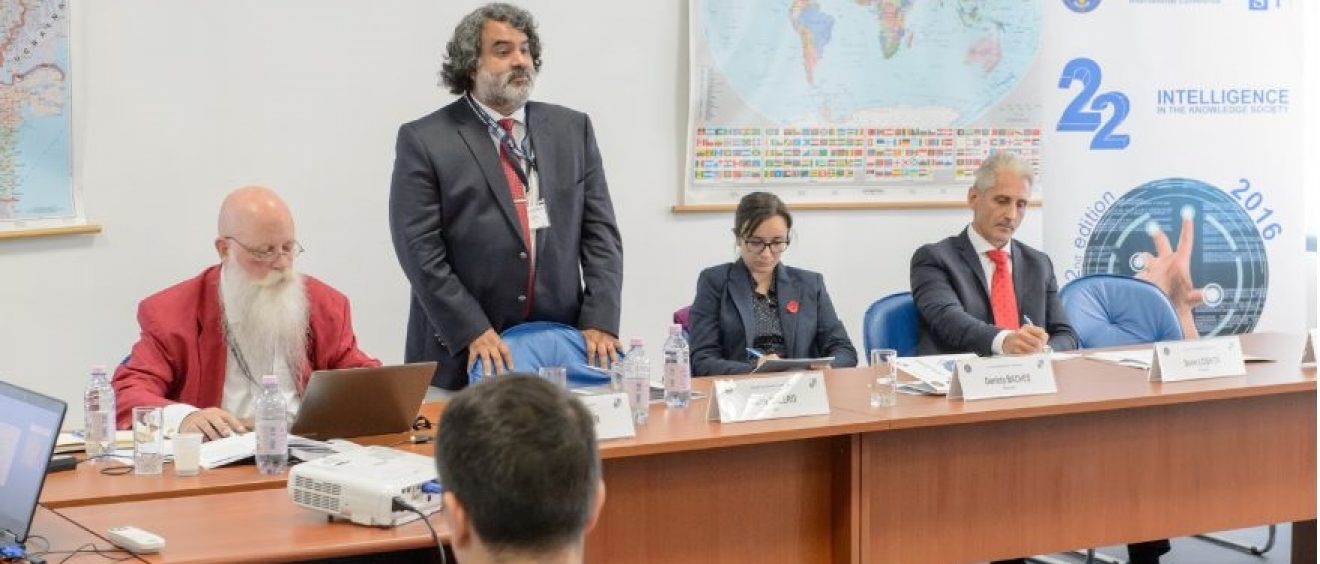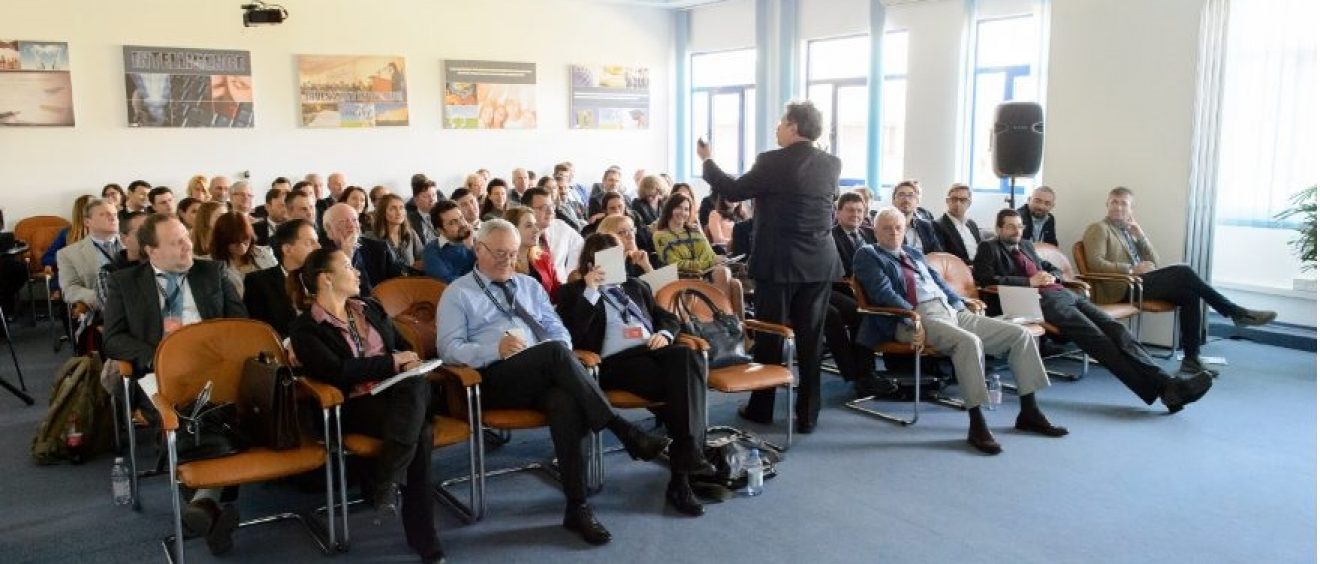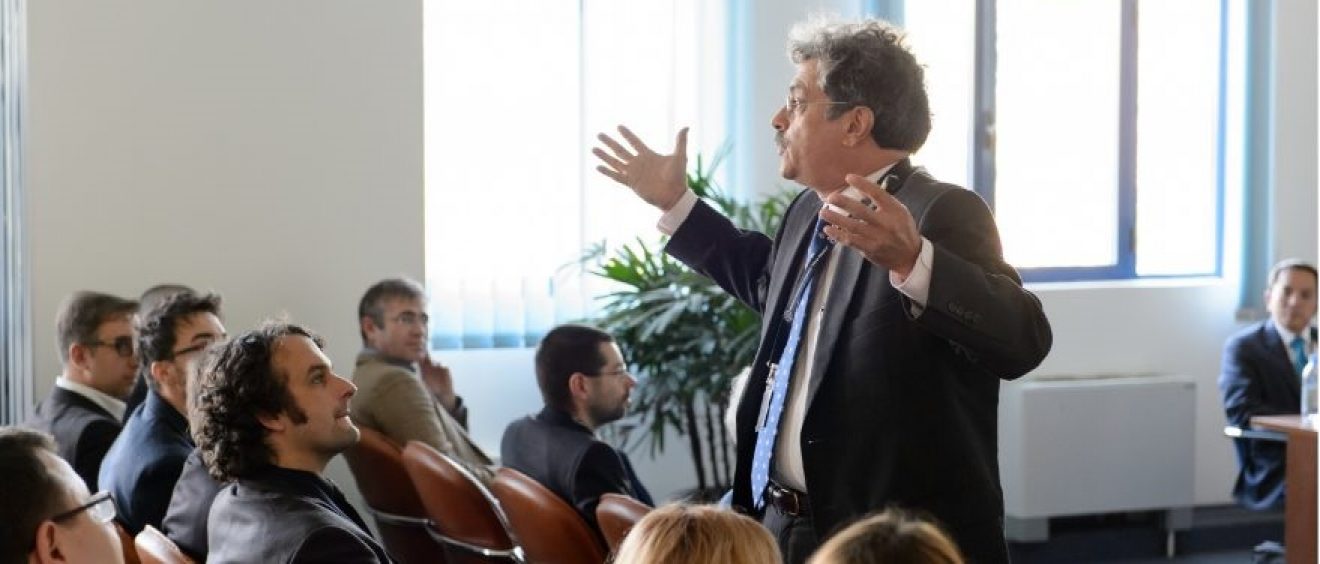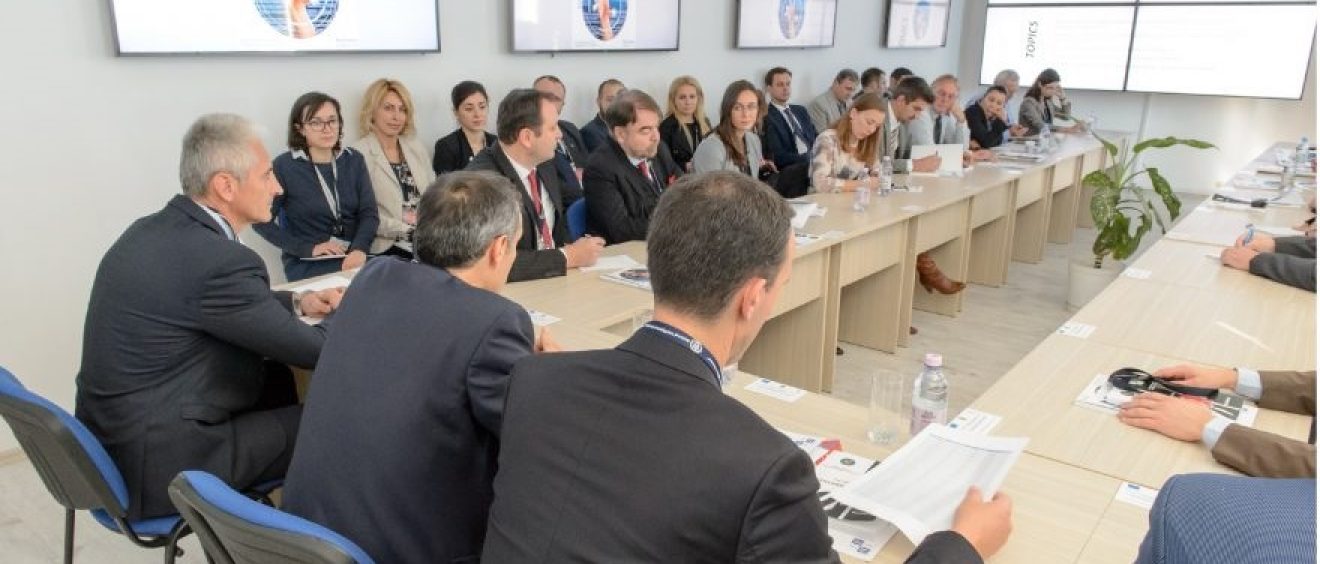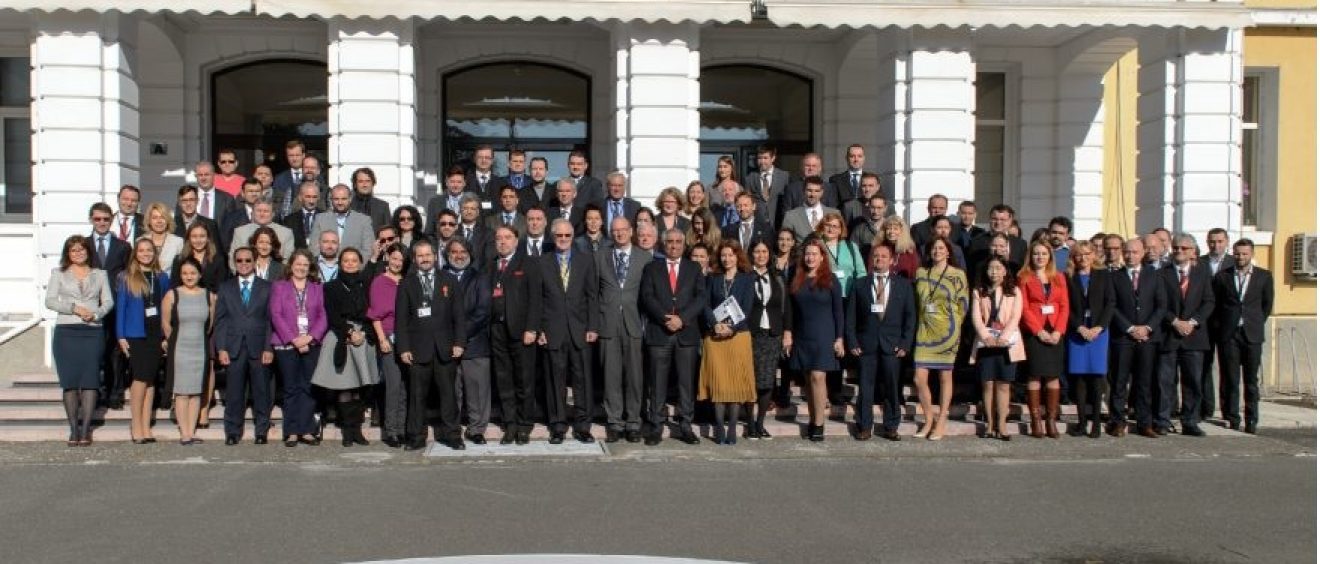On October 13 – 14, 2016, ”Mihai Viteazul” National Intelligence Academy organized the 22th edition of the international conference ”Intelligence in the Knowledge Society”. The event continued the culture set within the Academy to answer to an urgent need for knowledge on circumstances generating changes in modern society and influencing the international security dynamics. The conference panels addressed topics relevant for academia, experts, security, and intelligence practitioners. Presentations focused on various innovative methods of training in intelligence and creating new cooperation models at European level, as well as on potential efficient solutions to deliver information on risks between decisions makers and civil society, capitalizing the knowledge generated by the convergence of emerging technologies, security and intelligence.
This year’s edition proposed an innovative format, hosting both topic-oriented discussions within panels, as well as debate sessions and expert talk presentations, giving young researchers and PhD students in security and intelligence related fields the opportunity to present current researches, and even their own vision upon the security dynamics within a poster presentation.
The conference gathered more than 150 participants from Romania and other countries, prestigious international academia, but also experts and practitioners in intelligence and security studies. It offered the opportunity to debate and question the key hot topics on national, regional, and global security strategy.
The 22nd edition of the IKS Conference, about which I had heard already many good tidings in the past, lived up to my expectations in all respects: a gathering of collected wisdom and experience in intelligence from around the world hosted by a combination of Romanian efficiency and hospitality. Great presentations on current and potential developments in intelligence and its task and value environment, much food for thought and the possibility to make easy connections amidst many familiar as well as a host of new faces. It all contributes to the development of intelligence studies as an academic discipline in Europe, which I can only applaud as the chair of the European Chapter of the International Association for Intelligence Education.
The October 2016 Conference sponsored by the National Intelligence Academy of Romania continued a tradition of focusing on current and future intelligence issues of common concern to an international assemblage of practitioners, academics and experts. The topics of discussion included improved analytical tools, informational warfare techniques, policies for encryption challenges, intelligence agency cooperation efforts, radicalization as a prelude to terrorism and intelligence education. The scope and organization of the conference permitted and encouraged participant discussion on all topics of intelligence interest.
Beyond the substance of the presentations, the conference demonstrated the areas of common concerns among the participants from all over Europe and North America. The conference encouraged continued future contact among the various government agencies and international experts on such issues as analysis and terrorist prevention. On transnational issues like terrorism, proliferation, organized crime and rogue states, the conclusion at the conference was that intelligence agencies and experts must work together on these threats common to all.
It is always a pleasure to be back at IKS, the international conference on Intelligence in the Knowledge Society, organized in Bucharest by the Romanian Intelligence Academy. For me it is an opportunity to meet colleagues, friends and other intelligence scholars. The several panels tried to cover most of the issues and topics that contemporary intelligence activities have to face: cognitive biases, open sources, cyber warfare and the like. Particular attention was devoted to the problem of privacy and backdoors in communication systems. An interesting presentation described the recent EU-funded ARMLET project for training air marshals. My contribution tried to highlight the necessity of exploratory methods to elicit new hypotheses, in order to diminish the typically confirmatory nature of intelligence analysis. As a side note, I would like to have more room for an open discussion at the end of each presentation (and not of the session), in order to encourage a seemingly shy audience to ask questions and challenge the lecturers.
